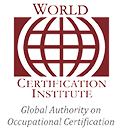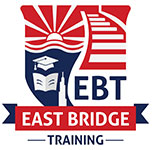Teaching in Indonesia – Asian College of Teachers (ACT)
Indonesia, a collection of around 17,000 islands making it an amazing location boasting not
only ecological diversity but also bringing together a myriad of cultures. If you enjoy water
sports then Lombok Island is a real surfer paradise. However, if you want to stay on dry land
you can explore the home of the legendary Komodo dragon while discovering the very real
magnificent creatures. But, if you are a history buff you will also love visiting temples and
shrines that date back to the ninth century and hold a lot of architectural significance.
It is a bustling city with a population of 238 million and there are so many amazing things to
see that no wonder it is one of the most popular destinations for people from all walks of life.
Additionally, there are a lot of opportunities open for those looking to teach in this heavenly
bliss but your earnings depend on the type of job and the location you have been placed at.
Students in Indonesia happen to be keen on improving their English skills and love to do this
by hearing about pop culture, hence creative teaching is embraced. Depending on the
location, you chose to base yourself on; you might find the country super busy or surprisingly
quiet.
Jakarta is the city that never sleeps, while Bali offers a more chilled experience, Sumatra on
the other hand connects you back to nature. So, once you have decided on your dream
destination, you will definitely find an array of excellent job offers there. Apart from walking
the bustling neon-lit streets of Jakarta to taking a sunbath on the beaches of Bali, Indonesia
has a lot to offer. Thus, if you want to live your dream of living and working in Indonesia, we
have got you covered. Here is everything you need to know regarding the qualifications,
credentials, and finances required to secure a job in Indonesia. Stay tuned!
Become a Certified and Skilled Teacher
Updated Educational Requirements to Teach in Indonesia
The vastness of the country brings with it a variety of choices to work as a teacher in
Indonesia. Demand for teachers is heavily driven in the ports of Bandung and Jakarta and
tourist spots like Sumatra and Bali also tend to have a constant stream of teaching positions
becoming available.
Education is highly valued and learning English is one of the most essential parts of the
Indonesian education system. Since the learning system needs to be reformed, the Indonesian
government is bringing in a lot of foreign nationals to raise the standards.
Thus, if you are keen on cashing this opportunity and are looking forwards to working in
Indonesia, you must have:
- A graduate degree from a recognized board or university (preferred)
- Citizenship from a native English-speaking country or having near-native proficiency
for ESL jobs
- Completed 120 hours of TEFL/TESOL course from a globally recognized institution
(for English teaching)
- Teaching experience of 5+ years (K12 schools)
- Teaching license in English like B.Ed, M.Ed, or equivalent (Public institutions)
- Must be able to commit for at least 1 year (preferred)
Updated Visa Requirements for Teaching in Indonesia
The visa process in Indonesia is not as simple as the other countries. Thus, to legally work
and live in the country you need to make that you are on the correct visa regardless of the
stage of your time in Indonesia. One thing to remember here is that your visa status is your
responsibility and that the visa rules and regulations of this country can change at any point in
time.
Even though the country offers a visa on arrival it is highly recommended to enter the nation
with a pre-approved visa. Additionally, your employer will sponsor you and help you with
the paperwork and documentation. You cannot get your work permit or any of the work-
related documents prior to receiving a job offer. There are several stages involved to get a
work visa, which include:
B211 Visa
This visa acts as a gate pass to the country and when you enter the country, the purpose of
this reason is tourism. The work visa part comes later as the B211 visa can be extended for
working. But when you are entering the country and applying for a visa, it is going to be this
visa, and it's for tourism purposes. The reason why this visa is recommended is that you can
extend it for work and allow you to get the work permit without having to leave the country.
ITAS (Izin Tinggal Terbatas)
This is a temporary stay permit that a work visa applicant needs to apply for and get the
following permits in the following order:
VITAS- This will allow the applicant to enter Indonesia for work purposes.
IMTA (Work Permit) - This will allow the applicant to legally work in Indonesia
ITAS- This acts as an immigration status where the immigration office stamps the passport
every year to show your residence status.
KITAS
This is the local name given to employment visas for foreign nationals who are willing to
work in Indonesia. Also, it cannot be stressed enough how vital it is to have a solid sponsor
even before you begin the visa application for Indonesia. While your sponsor will take care of
most of the documentation process, here is a list of documents you will need to apply for the
initial KITAS visa:
- Invitation letter
- Duly filled visa application form
- A valid passport for at least 18 months
- A letter from your school or sponsor company
- 2 passport-sized photographs
- Copies of your qualifications
- Notarized university transcripts
- Medical check
- Clean background check
Once the completed visa form and all the relevant documents are ready, they will be sent to
the responsible government office in Jakarta. The approval process takes around 30 days and
upon approval, you will get a "telex visa". This visa allows you to apply for an official visa at
the Indonesian embassy. Once your visit to the immigration office is completed you will have
to wait for another 30 days to receive the following documents that will allow you to legally
work and stay in the country:
- A Blue Book issued by the immigration
- A Yellow Book which is a police certificate
- STM which is a report certificate from the police
- IKTA your official working permit
Digital Nomad Visa
In 2021, the Indonesian government announced that digital nomads with foreign-sourced
income would be granted a 5-year digital nomad visa without taxation. This announcement
was indented to attract around 3.6 million overseas travelers and allows the holders to explore
the country's special retreats and eco-tourism.
However, this original idea is still debated and after more than a year of deliberation, the
Indonesian government has finally announced that remote workers will be allowed to work
online for at least six months via the existing B211 visa. On January 20, 2023, there was an
update that Indonesia's digital nomad visa was replaced by a second home visa which
required foreigners to have proof of funds of approximately $140,000.
Major Types of Educational Jobs in Indonesia
People in Indonesia start learning English from the elementary stage itself and hence, there is
a huge teaching opportunity in Indonesia as students are very eager to learn. Depending on
your experience and where you want to teach, options are varied. Moreover, there are
numerous institutions spread throughout the country, so if you do your research, you will be
able to find one that suits your salary and lifestyle needs.
Hiring for teaching positions in Indonesia continues all year round and almost all interviews
are conducted well in advance via phone call or e-mail. So, you can secure a job sitting back
in your home country unless your institution demands to see you in person.
Here are some of the educational institutions where you can decide to teach:
Training Centres
These centers are mostly attended by learners either on the weekends or in the evenings and
hence the demand for teachers is quite high. The centers normally have a specialized
curriculum and provide training materials to reduce the preparation time of the teachers.
The basic requirements to teach in Indonesian training centers include:
- A graduate degree from a recognized board or university (preferred)
- Citizenship from a native English-speaking country or having near-native proficiency
for ESL jobs
- 120 hours of TEFL/TESOL course from a globally recognized institution (for English
teaching)
- Must be able to commit for at least 1 year (preferred)
They normally prefer two years of experience but if you have the proper credentials, it will
not be hard to secure a job in one of these. You can earn around $650 per month.
Preschools/Kindergartens
This is one of the most sought-after jobs in Indonesia as it not only offers job security but
immense benefits as well. Preschools also offer to teach materials to make the job easy for
educators. Moreover, the class strength is 8-20 students are generally 20-40 minutes long.
You can earn around $2,500-$3,000 per month.
The basic requirements to teach in Indonesian preschools include:
- A graduate degree from a recognized board or university (preferred)
- Citizenship from a native English-speaking country or having near-native proficiency
for ESL jobs
- Completed 120 hours of TEFL/TESOL course from a globally recognized institution
(for English teaching)
- 2 years of teaching experience if you have a master's degree and 4 years of teaching
experience if you do not have a master's degree.
- Must be able to commit for at least 1 year (preferred)
International Schools
One of the highest paying options among the three, international schools have a huge demand
from foreign nations. The job market is heavily competitive and often requires teachers to be
a graduate and hold a teaching license from a reputed organization.
The basic requirements to teach in Indonesian international schools include:
- A graduate degree from a recognized board or university (preferred)
- Citizenship from a native English-speaking country or having near-native proficiency
for ESL jobs
- Completed 120 hours of TEFL/TESOL course from a globally recognized institution
(for English teaching)
- 3+ years of teaching experience if you have a master's degree and 4 years of teaching
experience if you do not have a master's degree.
- Must be able to commit for at least 1 year (preferred)
Most schools follow the IB or A-level, AP curriculum; hence teachers with familiarity with
these curriculums are highly preferred. You can earn around $2,500-$3,000 per month.
Private Schools
Expat teachers looking to find ESL opportunities in Indonesia will have better luck in finding
opportunities in private schools instead of public schools. Moreover, the overall proficiency
of students is much higher in private schools than in public schools.
The basic requirements to teach in Indonesian private schools include:
- A graduate degree from a recognized board or university (preferred)
- Citizenship from a native English-speaking country or having near-native proficiency
for ESL jobs
- Completed 120 hours of TEFL/TESOL course from a globally recognized institution
(for English teaching)
- 2 years of teaching experience if you have a master's degree and 4 years of teaching
experience if you do not have a master's degree.
- Must be able to commit for at least 1 year (preferred)
Additionally, the Ministry of Education in Indonesia manages the English programs and it
recently made changes in the curriculum asking public schools to focus more on learning
their official language, Bahasa Indonesia. Private schools, on the other hand, emphasize an
international curriculum for English education and hence seek qualified ESL instructors. You
can earn around $3,000- $3500 per month
Language Schools
Language schools often have extra-curricular programs or after-school programs that are
perfect for teachers who want to build their experience in teaching a wide range of students.
At such types of schools, students normally range from primary school level to university
level.
The basic requirements to teach in Indonesian language schools include:
- A graduate degree from a recognized board or university (preferred)
- Citizenship from a native English-speaking country or having near-native proficiency
for ESL jobs
- 120 hours of TEFL/TESOL course from a globally recognized institution (for English
teaching)
- Must be able to commit for at least 1 year (preferred)
These institutions take on the model of an evening school program so that even working
professionals can attend and fulfill their requirements. Thus, depending on how you want to
spend your time, language schools are always the right choice. You can earn around $1,000-
$1,500 per month.
Land a Teaching Job in Indonesia
Vacancies in Indonesia are generally posted all year round as they have an extended school
year that starts in mid-July and lasts through mid-June. The academic year is also broken up
by two holidays which are Eid and Christmas. Thus, there is no best time to apply; you can
find a vacancy that appeals to you any time of the year.
The types of educational jobs available in Indonesia include:
- Homeroom Teacher
- Primary/Elementary School Teacher
- Course Consultant
- Assistant Teacher
- School Principal
- Curriculum/course developer
- Training Coordinator
- Corporate Instructor
- Educational consultant
- Language professor
- Child care center director
- Learning Specialist
- Senior program coordinator
- Curriculum leader
If you want to land a job in Indonesia, here are some hot tips for a seamless job-seeking
experience:
- Take refuge in one of the most popular websites like Jobstreet, Teach Apply,
Glassdoor, Craiglist, etc.
- If you are focused to become a TEFL teacher then you can look for dedicated ESL-
based sites like TeachAway, Dave's ESL Cafe, Expat.com, WISHlist Jobs, Edvectus,
LinkedIn, etc.
- Get at least a 120-hour TEFL certification if you have not already polished your
resume.
You can also find vacancies in English-language newspapers like W3Newspapers. The
Guardian etc if you could manage the initial expenses of moving to Indonesia then
considering jobs through newspaper listings are the safest option as they offer you an
opportunity of attending walk-in interviews if already present in the country.
Cost of Living In Indonesia
The cost of living in Indonesia depends on the location you choose. Whether you decide to
live in rural or urban areas will decide your expenses. However, generally speaking,
Indonesia is not an uber-expensive country as compared to European or Western countries.
This basically means that even though your salary might not seem generous, it is super
sufficient since everything is so affordable.
However, one thing to note here is that even though Indonesia has a low cost of living than
other Southeast Asian countries, it has some of the most expensive hotels worldwide, so if
you are planning a luxurious vacation, things can get a little pricey.
Depending on the number of hours you want to work and how frugal you are with money,
here is a basic rundown of the expenses for foreign nationals living in Indonesia:
- Food: $120-$180 per month depending on how much you spend on groceries or
eating out
- Transportation: A monthly transportation pass for public means is around $10-$20 per
month
- Entertainment: Depending on your expenses around $50-$100 per month
- Housing: $150-$450 for a room in shared accommodation, depending on the city
- Utilities (Water, Electricity, etc): $10-$40 per month
Major Perks of Teaching in Indonesia
Indonesia involves an ever-growing and huge education sector with plenty of teaching
opportunities available for all aspirants. However, the education sector has a long way to go
and hence more high-quality foreign teachers are in demand to improve the industry in a
positive way.
Apart from having magnificent locations to explore, here are some of the common benefits
you can earn as a teacher in Indonesia:
- Housing or housing allowance (depends on the schools and organizations)
- Annual airfare reimbursement
- Health/medical insurance
- Annual bonuses
- Contract renewal bonus
- Loyalty bonus
- Paid vacation
Popular Places to Teach English in Indonesia
Living and working in Indonesia has its own charm and the country is inhabited by some of
the most hospitable people you will ever meet. Since you will find yourself spoilt for choice,
selecting the best place to work might be a little overwhelming.
However, to ease your pain, here are some of the most popular options you must explore for a
headstart.
Jakarta
The capital of Indonesia and probably the first port call for job seekers. It is the country’s
commercial and political capital and hence you find a huge number of schools willing to hire
foreign nationals and satisfy their teacher requirements.
Bali
Known for its incredibly lush volcanic mountains, stunning beaches, picturesque coral reefs,
and breathtaking rice paddies, Bali is another popular destination for expats. Being the largest
tourist destination, English language teachers are always in demand here.
Yogyakarta
Lying in the heart of Java it is well known for its traditional arts and cultural heritage. Being
the center of higher education, the area houses some of the best private language academies
and public schools which makes it a favorable place to live and work for teachers.
Bandung
The capital of West Java is best known for its universities and tropical weather. It is also
famous for teaching options offered by premium international schools and training centers.
Teach and Live in Indonesia
As a teacher in Indonesia, it is essential for you to take some time to research the country’s
etiquette and classroom culture. This is because as educators you are supposed to be
respectful and understanding while adapting to a new classroom environment. About 86% of
the Indonesian population practice Islam and hence it is recommended that you wear
conservative clothing. However, Bali being a tourist spot is more relaxed in terms of dress
codes.
It is also a common Indonesian culture to take off your shoes before entering someone's
house or a carpeted room or a place of worship. Also, things like pork and alcohol are off-
limits for many individuals. You should pass food only with your right hand and you should
never leave your glass empty unless you want a refill. Bringing a small gift while meeting
friends is customary even though they will initially refuse it a couple of times before finally
accepting it.
Overall, Indonesia is a country that emanates an energetic feeling at all times of the day, so
you will never get an excuse to get bored here. Therefore, do your research, run into locals,
and make it a place to make a lot of friends and have memorable experiences.























